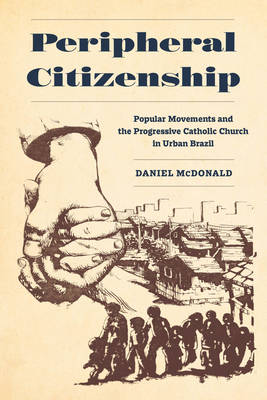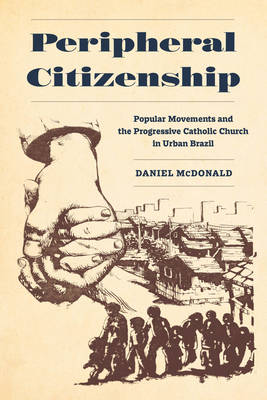
- Afhalen na 1 uur in een winkel met voorraad
- Gratis thuislevering in België vanaf € 30
- Ruim aanbod met 7 miljoen producten
- Afhalen na 1 uur in een winkel met voorraad
- Gratis thuislevering in België vanaf € 30
- Ruim aanbod met 7 miljoen producten
Peripheral Citizenship
Popular Movements and the Progressive Catholic Church in Urban Brazil
Daniel McDonaldOmschrijving
How is citizenship constructed from the margins? Peripheral Citizenship examines this question by placing the urban outskirts of South America's most populous city, São Paulo, amid processes that transformed twentieth-century Latin America: rural-urban migration and rapid urbanization, the advent of liberation theology, and the rise and fall of military dictatorships. Drawing on oral histories and grassroots archives, Daniel McDonald traces the emergence of a remarkable bottom-up rights campaign through the lives of rural migrants, progressive clergy, and allied activists in São Paulo during Brazil's military dictatorship (1964-1985) and the subsequent democratic transition. He unveils how popular movements, aligned with the progressive Catholic Church and leftist political parties, forged a vision of citizenship that combined rights grounded in everyday life with innovative forms of participatory democracy. In the process, they reshaped the city, the church, and the nation from the periphery.
Specificaties
Betrokkenen
- Auteur(s):
- Uitgeverij:
Inhoud
- Aantal bladzijden:
- 360
- Taal:
- Engels
Eigenschappen
- Productcode (EAN):
- 9780520394582
- Verschijningsdatum:
- 14/07/2026
- Uitvoering:
- Paperback
- Formaat:
- Trade paperback (VS)
- Afmetingen:
- 152 mm x 229 mm

Alleen bij Standaard Boekhandel
Beoordelingen
We publiceren alleen reviews die voldoen aan de voorwaarden voor reviews. Bekijk onze voorwaarden voor reviews.







